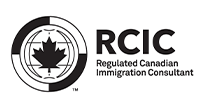Understanding Work Schedules, Modified Work Arrangements, and Permits in Saskatchewan
Navigating the complexities of labor regulations is crucial for both employers and employees in Saskatchewan. Work schedules, modified work arrangements, and permits play significant roles in how businesses operate and ensure compliance with employment standards. In this blog post, we will explore these topics in detail, providing insights into their implications and practical applications.
Work Schedules and Breaks
The Importance of Clear Scheduling
In Saskatchewan, employers are required to provide employees with their work schedules at least one week in advance. This rule is designed to promote transparency and allow employees to plan their personal lives accordingly. Clear schedules help in fostering a positive work environment and can lead to increased job satisfaction and productivity.
What Schedules Must Include
A well-defined work schedule should include:
- Start and End Times: Clearly indicate when work begins and when it concludes.
- Break Times: Specify the duration and timing of breaks, ensuring employees know when they can rest.
Understanding Overtime
Employers must also be cognizant of the rules surrounding overtime hours. Overtime pay is typically applicable when employees work beyond the standard hours stipulated by their employment contracts or local labor laws. Familiarizing oneself with these regulations is vital to prevent disputes and ensure fair compensation.
Breaks and Rest Periods
Under Saskatchewan’s Employment Standards, employees are entitled to breaks based on the length of their shift. For example, a standard workday often requires:
- Short Breaks: Generally, a 15-minute break for shifts of 5 hours or more.
- Meal Breaks: Typically, a 30-minute meal break for shifts of 6 hours or more.
Employers should incorporate these breaks into the work schedule and communicate them clearly to employees.
Modified Work Arrangements
What Are Modified Work Arrangements?
Modified work arrangements allow employers and employees to average hours over a defined period—up to four weeks. This flexibility can help businesses manage fluctuating workloads while accommodating employees’ needs.
Agreement and Implementation
To implement a modified work arrangement, both parties must agree on the terms. This mutual understanding is crucial to ensure that expectations are clear and that both employer and employee are on the same page regarding hours worked and scheduling.
Duration of Modified Work Arrangements
It’s important to note that these arrangements are not permanent. Modified work arrangements in Saskatchewan expire after two years. After this period, employers and employees must revisit their work structure and potentially renegotiate their agreement.
Benefits of Modified Work Arrangements
- Increased Flexibility: Employees can benefit from a more adaptable work schedule that may accommodate personal commitments.
- Improved Work-Life Balance: By averaging hours, employees can potentially enjoy longer periods of time off while still meeting the organization’s needs.
- Enhanced Productivity: Businesses can better manage resources and workloads, leading to increased efficiency during peak times.
Permits for Deviating from Standard Rules
When Are Permits Necessary?
In certain situations, employers may need to deviate from standard labor rules outlined in the Employment Standards Code. This could include alterations to work schedules, break periods, or overtime policies.
Applying for Permits
Employers must apply to the Director of Employment Standards for permission to deviate from established rules. This process ensures that any changes align with labor laws and protect employee rights.
Union Agreements
If the employees are represented by a trade union, employers can also seek the written agreement of the union representing affected employees. This collaborative approach can facilitate smoother negotiations and foster positive workplace relations.
Importance of Compliance
It is crucial for employers to understand the implications of failing to adhere to these regulations. Non-compliance can lead to legal disputes, financial penalties, and damage to the organization’s reputation. Therefore, maintaining transparency and following the proper channels is essential.
Best Practices for Employers
Proactive Communication
To avoid misunderstandings and potential conflicts, employers should engage in proactive communication with their employees. Regular check-ins regarding work schedules and any potential changes can promote a culture of openness and trust.
Documenting Agreements
Whenever an agreement regarding modified work arrangements or schedule changes is made, it should be documented in writing. This practice not only protects both parties but also serves as a reference in case of disputes.
Training for Managers
Employers should provide training for management staff on labor laws, scheduling practices, and the importance of employee well-being. Well-informed managers can help create a positive work environment and ensure compliance with regulations.
Regular Review of Work Arrangements
Employers should periodically review their work arrangements and schedules to assess their effectiveness. Feedback from employees can provide valuable insights into how arrangements can be improved or modified to better meet their needs.
Understanding work schedules, modified work arrangements, and permits is vital for employers and employees alike in Saskatchewan. By adhering to the regulations set forth in the Employment Standards Code, businesses can create a fair and efficient work environment that respects employee rights.
Employers should prioritize clear communication, documentation, and compliance with labor laws to foster a positive workplace culture. By taking proactive steps, organizations can navigate the complexities of work schedules and arrangements while supporting their workforce effectively.
For more information on employment standards, modified work arrangements, or permits, feel free to reach out to Guide Me Immigration Ltd. We are here to help you navigate the complexities of labor laws and ensure your business thrives while maintaining compliance.







